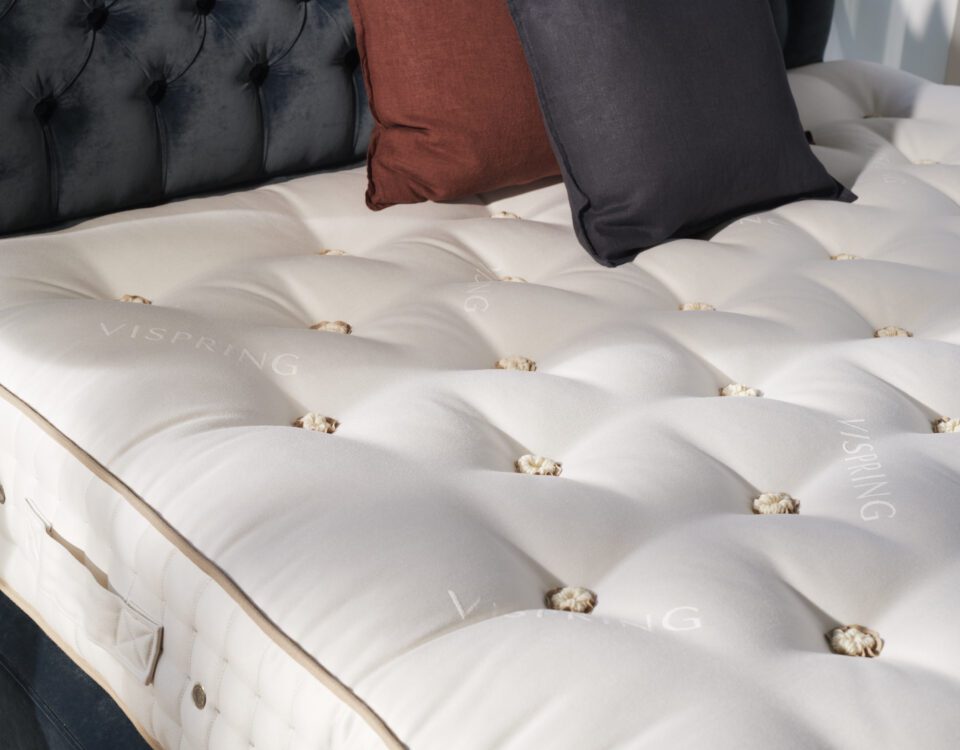5 solutions for kids sleep problems

Sleep is an important time for the brain and body to grow and mend itself from the day’s activities. While medical science hasn’t unlocked every reason that we sleep, it has been shown to be important in the developing mind. Consistent sleep deprivation, even by just an hour a night, can lead to health issues, weight gain, behavioral problems, and academic struggles.
Plus, when your kids don’t sleep, you don’t sleep. Whether it’s being awake with them through the night, or dealing with outbursts and breakdowns throughout the day due to sleep deprivation, keeping your kids sleep problems to a minimum is important to both of you.
While sleep disorders can be problematic at early ages (and if you suspect your kids sleeping problems are serious, consult with your pediatrician), there are a few simple steps you can take to reduce bedtime problems. If you’re concerned that an uncomfortable mattress may be part of the problem, check out our previous post about the top 5 kids mattresses.
- Develop a routine – Establishing steps before bed isn’t just good for you, it’s good for you kids too. Our brains are hardwired to look for patterns, and this is especially true for children. Make sure to follow the same routine night after night: that includes following the same steps from brushing their teeth to tucking them in to reading them a story or playing music. You also want to make sure things are kept more low-key and quiet at least an hour before your child goes to bed — stimulus like talking, TV, or bright lights can exacerbate kids sleep problems.
-
Reduce allergens – If you’re putting your child to bed at a reasonable (and consistent) hour, but they struggle to go to sleep or stay asleep through the night, indoor allergies could be the culprit. Stuffy noses and coughing brought on by allergens could be limiting proper sleep. Many of the same steps we talked about in our earlier bedroom allergen blog, including keeping the room clear of unnecessary items, regularly washing bedsheets, keeping pets out of the room, and making sure you have a hypoallergenic mattress like the Tempur-Pedic or Simmons ComforPedic apply to your kids as well. In addition, regularly washing bedtime toys like teddy bears can be a big part of keeping allergens down.
- Let them fall asleep alone – I know, watching your kids fall asleep and being there to comfort them is a wonderful feeling. However, by staying with them until they fall asleep, kids may have problems falling asleep alone later. This can especially be problematic when they come to get you every time they wake up throughout the night. To help them learn to fall asleep on their own, leave when they’re drowsy before they fall asleep. This can keep those 3 a.m. wake-up calls to a minimum, and help your kids get more sleep by empowering them to fall asleep on their own.
- Track caffeine – Sure, you’re keeping them away from the coffee and soda, but there may be little places where naturally occurring caffeine is seeping into their diets. Because of their smaller bodies and developing brains, small amounts of caffeine can have a magnified effect on your kids. These small caffeine sources may be keeping your kids awake, especially if they’re consumed later in the day. Other than the obvious sources like coffee and soda, many teas and chocolate also have naturally occurring caffeine. So any after-dinner treat or bedtime snack made with cocoa could be the culprit. While eliminating these from their diets may not always be possible, limiting the amount they consume — especially later in the day — may help reduce kids sleep problems later in the night.
- Watch for problems – If your kids are having trouble sleeping, make sure to observe and talk with them. If they’re snoring when they sleep, breathing more heavily than normal, or just being generally restless while they sleep, consult with a pediatrician. Many problems that adults deal with when sleeping can start in early childhood. By being aware of your their sleep, it can not only help reduce your kids sleep problems, it can also help you get a better night’s rest.
You know your child’s nighttime habits. The most important step is recognizing when a problem starts and taking proactive measures to resolve it.





